Bashar al-Assad was born into a life of politics.
But he wasn't destined for the presidency.
Raised in Damascus, the second son of former Syrian President Hafez al-Assad graduated from high school in 1982 and studied medicine, becoming an ophthalmologist in London.
However his medical ambitions were replaced with political ones when his eldest brother Bassel — who had been groomed to assume the presidency — died in a car accident in 1994.
Mr Assad was immediately called back to Damascus and in 2000, became president after his father's death, ending a 30 year rule.
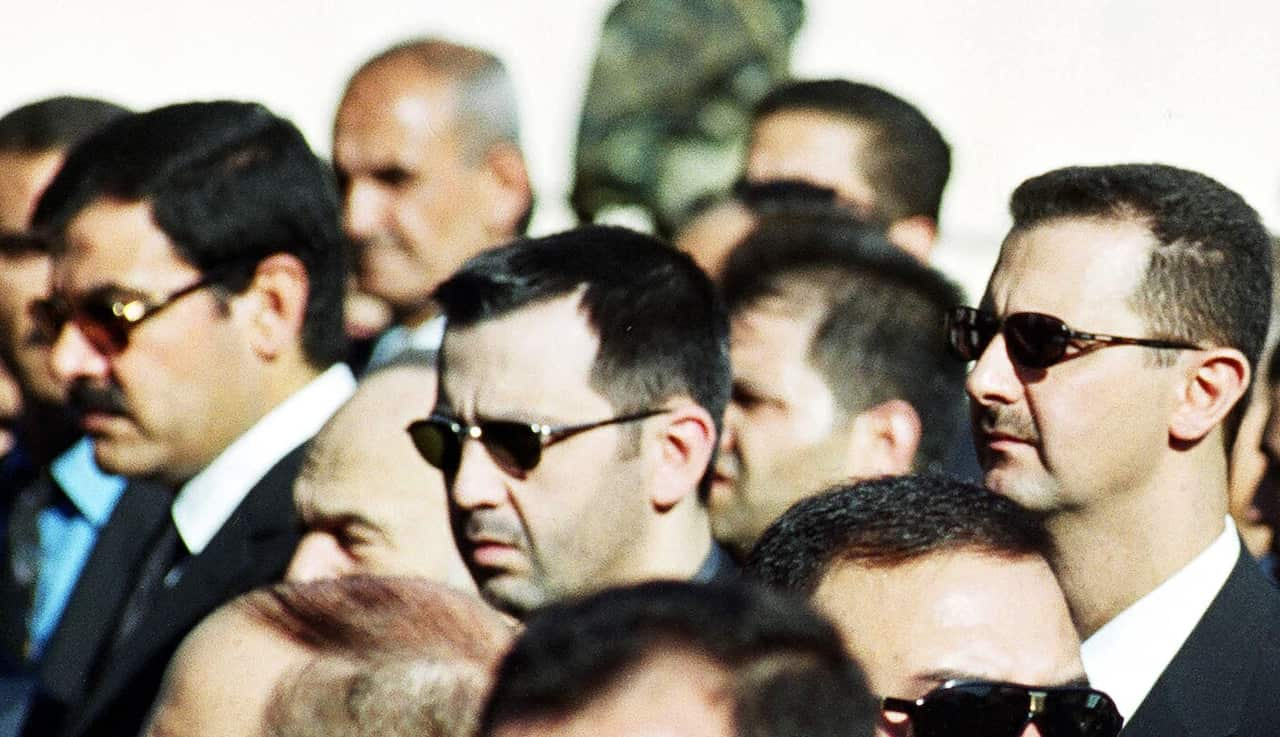
The Damascus Spring
At first, Mr Assad seemed eager to implement reform in Syria, stating that democracy was a "tool to a better life."
In his inaugural address, Mr Assad promised to modernise the economy, fight corruption and launch a new era of democracy in Syria.
And for a while, he appeared to keep his word, releasing hundreds of political prisoners and encouraging press freedom, during an era known as the "Damascus Spring."
But that freedom didn't last.
In 2011, a Tunisian street vendor set himself on fire, sparking the so-called Arab Spring.
A tidal wave of rebellion swept across the Middle East.
Unlike his regional counterparts, Mr Assad gave orders to crush dissent, and refused to meet protesters' demands.
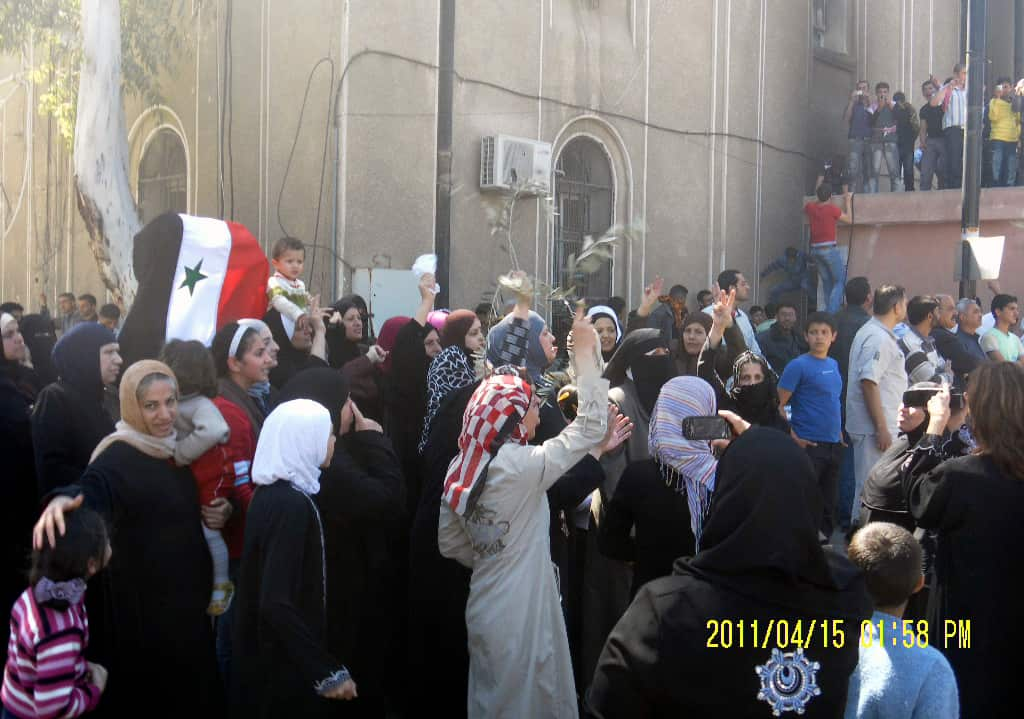
After police arrested at least 15 school children for painting anti-government graffiti on the walls of a school in the southern city of Daraa in March 2011, thousands took to the streets in protest at their treatment.
The Syrian military acted swiftly, opening fire on the crowd, killing several protestors.
Mr Assad blamed outside conspirators for the uprisings.
"Our enemies are actually working very hard, (are) very well-organised, to try and strike at Syria. We acknowledge their intelligence, ingenuity, in choosing their methods and styles, but we also acknowledge that they have not been intelligent in striking at the Syrian people, who are aware of the conspiracy," he said.
The heavy-handed response only provoked more demonstrations, and Syria quickly spiraled into a civil war.
Small groups of armed rebels began to appear and the war took on distinct sectarian dimensions.
Many in the country's majority Sunni population decided to rise up against decades of the Assad dynasty's Shia Allawite rule.
Speaking in 2013, Mr Assad said he was not prepared to negotiate with rebel groups.
"We will not negotiate with people with extremist ideas and whose language is only killing and terrorism. Can we negotiate with gains who are dictated and funded and manipulated by outside? If we do that we know that dialogue will weaken Syria, will put an end to Syria especially some regional country whose officials know that if Syria comes out of this crisis that will be the end of this country, politically speaking."
Chemical Weapons
Mr Assad's government deployed barrel bombs and reports emerged of the use of chemical weapons in the town of Gouta.
The President denied his government was responsible for these attacks against his own people.
"This is a childish story that keeps repeating in the West. Why? Again, if somebody who's against his people and against the regional powers and the great powers and the West and survive, how? If you kill the Syrian people do they support you or become against you? As long as you have the public support, it means you are defending the people. If you kill the people it means they will be against you," he said.
However United States Secretary of State John Kerry insisted the Assad government had attacked its own people, based on evidence gathered by the United Nations.
"Anybody who reads the facts, and joins the dots -- which is easy to do, and they made it easy to do -- understands what those facts mean," Mr Kerry said.
UN Secretary General Ban Ki Moon agreed evidence suggested the Syrian government had attacked its own civilians.
"The current situation caused by the allegation of chemical weapons use and the deteriorating humanitarian situation in Syria, urgently requires all leaders to focus political will to address this issue. There is no military solution. There is only a political solution which can bring peace and end this bloodshed right now," he said.
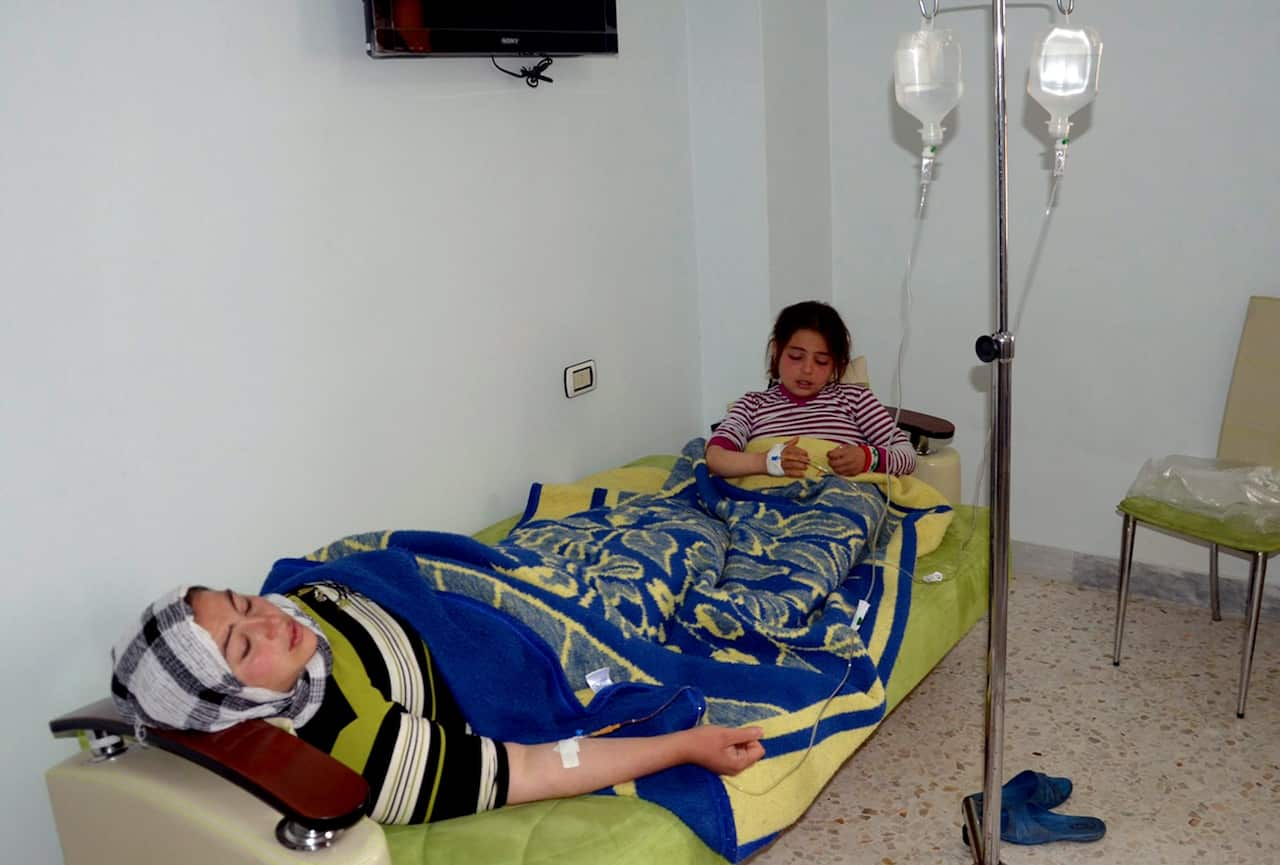
Amid the chaos, rebels on the ground splintered and the so-called Islamic State spread from Iraq - carving out and defending its own brutal caliphate.
in 2014 Russia intervened on behalf of the Assad government and IS has battled to retain its territory.
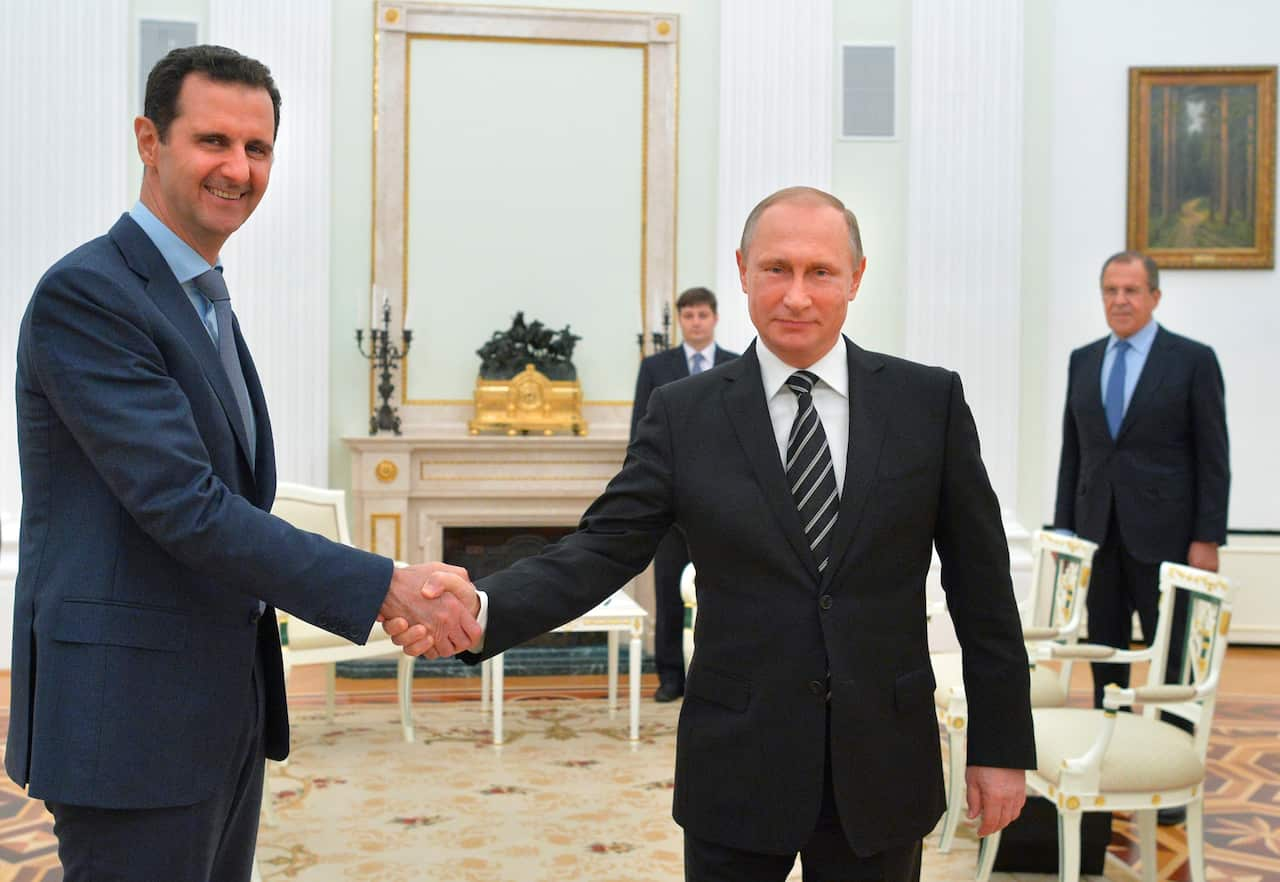
Mr Assad has thanked Russian President, Vladimir Putin for his support in the conflict.
"Terrorism which has now spread throughout the region would have taken much larger areas and would have spread to larger territory and beyond if it were not for your actions and your decisions," Mr Assad said.
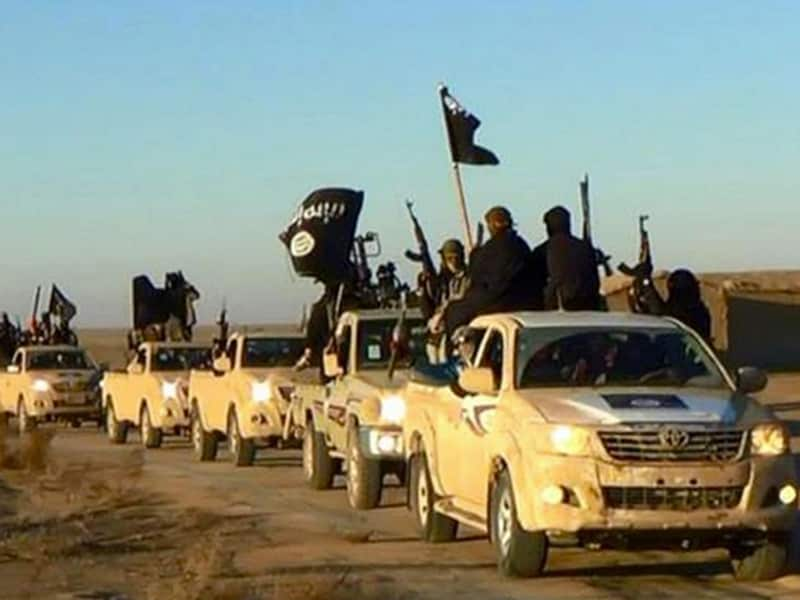
A Humanitarian Crisis
Outside intervention in the conflict has spawned multiple rebels groups, and neither the government nor the opposition are apparently able to deal the decisive blow.
After 5 years of war, the government controls less than 40% of the country.
In an interview last year, President Assad insisted Syria was not a failed state.
"As long as the government and the state institutions are fulfilling its duty towards the Syrian people, we cannot talk about failed states. Talking about losing control is something completely different. It's like if you have an invasion of terrorists coming from abroad and the government is doing its job in fighting and defending its country."
But the numbers say otherwise.
More than 11 million people have been forced to flee their homes, many seeking asylum overseas.
The man once welcomed as a symbol of new democracy in the Middle East, is now struggling to keep his country intact.

